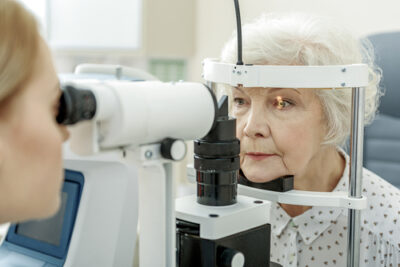If you’ve found out that you need to have cataract surgery, you may have a lot of questions. For many people, the biggest thing they wonder is what to expect after having the procedure. Keep reading to learn more!
Prepare to take it easy for a little bit

After any surgical procedure, there’s always a recovery period, and that’s also true when you have cataract surgery. First things first, don’t plan to do anything too intense or difficult right after having cataract surgery.
For the first day or two, you’ll want to relax and let others do things for you. This is not the time to think about running a marathon or anything else that’s strenuous!
Your eyes may be a little more sensitive than normal, so you’ll want to stick to activities that don’t require you to see or look too much. This may include listening to podcasts, downloading audiobooks, or relaxing in a sunny spot with your pet.
Plan a ride home for the day of your procedure

You may feel great and your vision may even be improved but you will not be allowed to drive yourself home after having cataract surgery. Make sure you have someone that can drive you home and they can also ensure you get inside safely.
Many patients decide to have a family member or a close friend drive them home for this reason. Since you’ll need to take it easy, you may want to see if your friend or family member can stay with you, at least for the first day.
They may be able to run any errands, do some small chores, and just keep you comfortable while you begin the recovery process.
You will be limited with your physical activities

For at least the first week or two, refrain from any kind of strenuous physical activity. Your eyes may feel amazing and you may feel up to your normal tasks, but it’s about keeping your eye pressure levels down.
After cataract surgery, any kind of strenuous activity (like vigorous exercising) could lead to your eye pressure levels increasing. If these levels get too high, it could increase your risk of developing serious complications after cataract surgery.
This means avoiding any kind of high-intensity exercising like weight-lifting, any kind of bending over at the waist, and activities that increase your risk of infection. Your eye doctor will let you know when these activities are safe to complete again.
Avoid any and all bodies or water for at least a week

If swimming is a huge part of your daily routine, you may want to wait to have cataract surgery when it’s colder outside. Why?
You cannot swim for at least a week after having cataract surgery. Swimming in any bodies of water is exactly the kind of activity that could increase your risk of infection.
Water is one of the places that are perfect for bacteria to breed in, and after having cataract surgery, you’re more susceptible to infections. Avoid hot tubs, saunas, lakes, pools, oceans, streams, rivers, and any other body of water you can think of until your eye doctor has cleared you to swim again.
You’ll need to take eye drops on a regular basis

One thing that many people aren’t aware of is part of the cataract surgery recovery process are eye drops. These aren’t your average eye drops, since they keep inflammation and infection at bay.
But if you want them to work as they should, it’s important to take them exactly as directed! This may mean taking them every hour, or every few hours.
If you don’t take them the right way, they may not be as effective. It’s not a fun part of your cataract surgery recovery, but it’s necessary and only temporary. It’s worth it to finally have clear vision that’s free of cataracts!
Your vision may take a few days to stabilize

If you’re having cataract surgery, part of the reason is that your cataracts are making it impossible to live your life. You may not be able to take part in your favorite activities, or you may have injured yourself one too many times because you can’t see anymore.
Whatever your reasons, you’ll definitely be anxious to experience clear vision. But this may take longer than you expect it to. Sure, removing the natural lens of the eye (where the cataract is) will provide you with clear vision, but it’s not usually an immediate thing.
For some patients, this can take a few days. This is because it can be a bit jarring for your eyes to have to adjust to the new IOL (intraocular lens) that’s now sitting in your eye.
Your vision may be blurry, cloudy, or hazy while you get used to this new artificial lens. After this short adjustment period, your vision should start to stabilize and clear up.
Don’t forget about follow-up appointments

With any surgical procedure, you’ll need to attend several follow-up appointments, and cataract surgery is no exception to this. It’s important to attend all follow-up appointments with your eye doctor to make sure your eye is healing and there are no complications.
Expect to see your eye doctor the day after your procedure and then a few more times in the weeks and months during your recovery. If you have any questions or concerns, your follow-up appointments with your eye doctor are the perfect time to ask them!
If you have cataracts in both eyes, you will need to have surgery on both eyes, but this isn’t done at the same time. Most times, your surgeon will determine which cataract is worse and will remove that one first.
You’ll have your second cataract removed in a separate procedure about a month to six weeks later. You wouldn’t want to have both removed at the same time because it would render you almost entirely blind.
Still not sure how to feel about cataract surgery? The talented ophthalmologists at Sugiki Portis Yim Eye Center are here to help! Schedule a cataract screening in Honolulu, HI today!
Cataracts and cataract surgery may seem scary, but a life of vision impairment and uncertainty is much more frightening.





